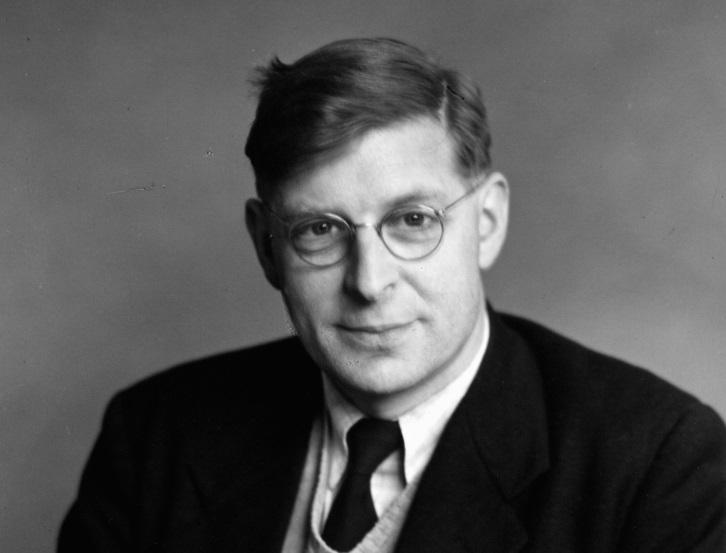Rothamsted Experimental Station: mechanical cows
Norman Wingate Pirie FRS ©Godfrey Argent Studio
Norman Wingate Pirie FRS (1907-1997) was a leading biochemist, trained in the laboratory of Royal Society President Sir Frederick Gowland Hopkins (1861-1947) and a colleague and friend of J.B.S.Haldane FRS (1892-1964). Pirie’s major research was conducted on tobacco mosaic virus with Frederick Bawden in the 1930s and 1940s and the pair demonstrated that ribonucleic acid was present in this and in other plant viruses. From 1940, Pirie worked at the Rothamsted Experimental Station in Hertfordshire, England, the longest established agricultural research venue in the world.
In tandem with his other researches, Pirie began to investigate the potential of leaf protein for human nutrition. Always an unconventional thinker, Pirie reasoned that it would be more efficient to use grassland directly as a source of food for humans, rather than as fodder for cattle. Although the rationing environment of the Second World War gave an impetus to this kind of thinking, initially in association with Imperial Chemical Industries (ICI), Pirie was more interested in addressing the problems of famine and the varying distribution of food throughout the world.
Pirie’s work was not part of the regular research programme at Rothamsted, but was supported through external grants, particularly (from 1965) by the Wolfson Foundation. The main objective of his £6,000 allowance was to retain the staff and resources he needed in order to develop the technology to disrupt plant material, extract its juices, coagulate protein from this, and store it in dried form. Industrial-scale processing was not a possibility for Pirie’s limited funding; by the time of the Wolfson grant he had in mind small-scale presses that might be simple to operate and install at local level. Such machines – ‘Mechanical Cows’ – were patented and their nutritional products tested.
Although the science behind leaf protein was sound, the idea of dining on it did not catch on. Cultural resistance, engineering difficulties and continuing improvements in conventional agriculture were all cited as reasons against the widespread take-up of this imaginative, but ultimately doomed, initiative.
Explore the archives
- WF/253/1a, b, c, d
‘Application for support for projects aimed at increasing the supply of protein…’ by Norman Wingate Pirie, 3 September 1964, to the Wolfson Foundation - WF/253/6
Letter from Sir Harold Redman, The Wolfson Foundation, 7 October 1964, to Sir Solly Zuckerman, Ministry of Defence, Whitehall, London - WF/253/8
Letter from Sir Solly Zuckerman, Department of Anatomy, Medical School, University of Birmingham, 14 October 1964, to Sir Harold Redman, The Wolfson Foundation - WF/253/22a, b
Letter from Norman Wingate Pirie, Rothamsted Experimental Station, Harpenden, 5 May 1965, to Sir Harold Redman, The Wolfson Foundation - WF/253/27
Letter from Sir Solly Zuckerman, Ministry of Defence, Whitehall, London, 13 May 1965, to Sir Harold Redman, The Wolfson Foundation - WF/253/33a, b, c
‘Statement of the present state of the International Biological Programme…’ by Norman Wingate Pirie, July, 1963 - WF/253/38
Memorandum, Sir Harold Redman, The Wolfson Foundation, 19 May 1965, to Wolfson Trustees - WF/253/47
Newspaper cutting, ‘Only the hungry take leaf protein seriously, [source unknown] June 1965 - WF/253/61
Photograph of leaf-pulping machinery for protein extraction, Rothamsted Experimental Station, September 1967 - WF/253/84
Letter from Norman Wingate Pirie, Rothamsted Experimental Station, Harpenden, 3 January 1969, to Arundell Rea Leakey, The Wolfson Foundation

